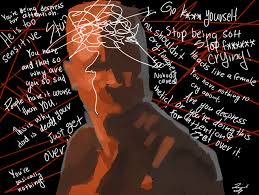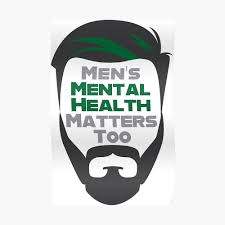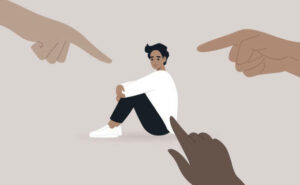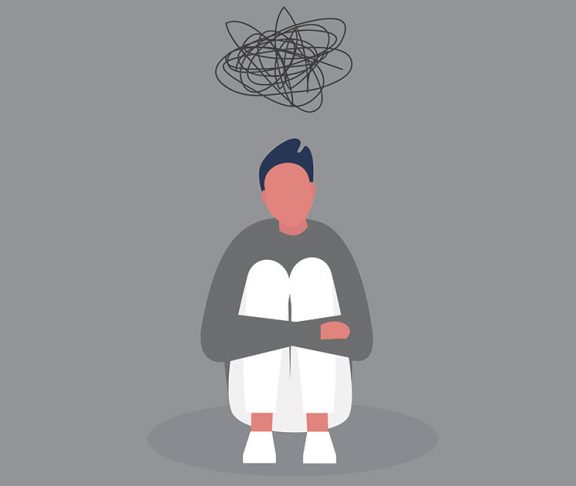Did you know that June is Men’s Mental Health Month? This is a time when we all need to be more aware of the fact that men, just like women, can struggle with mental health issues. In this blog post, we will discuss some of the most common mental health problems that men face, as well as some of the best ways to get help. If you know someone who is struggling, please share this blog post with them!
Contents
What Are Men’s Struggles With Mental Health?

Mental health is often seen as a women’s issue. This is because mental health issues are more commonly spoken about by women, and more research has been conducted on women’s mental health. However, it is important to remember that men can also suffer from mental health problems. While men can suffer from a wide variety of mental illnesses, some of the most commonly noted disorders in men include:
- Depression
- Generalized anxiety disorder
- Post-traumatic stress disorder (PTSD)
- Obsessive-compulsive disorder (OCD)
- Social anxiety
- Bipolar disorder
- Schizophrenia
- Substance abuse
- Eating disorders
In addition to clinical disorders, men also face mental and emotional stress due to a variety of reasons. Some of these reasons include reasons such:
- Toxic cultural and social gender norms pass off men as emotionally superior. This makes it difficult for them to openly speak up.
- The traditional role of men being the ‘providers’ leaves little to no scope for receiving socio-emotional support from their surroundings.
- Labeling certain emotions and character traits (for example, crying, being shy) as ‘feminine’ or ‘weak’ makes men keep from expressing themselves, further making them bottle up their struggles.
- The mainstream media representation of what an ‘ideal’ man should look like promotes unrealistic standards. Being unable to live up to them can cause feelings of worthlessness, low self-esteem, jealousy, insecurities, and unhealthy comparisons.
Effects On Men’s Mental Health

The effect of untreated mental health can have effects on a man’s physical, and mental health as well as emotional well-being. Some commonly observed side effects include
- Increased irritability
- Effects on academic/work performance
- Body image issues
- Hypertension
- Strained personal/social relationships
- Intimacy issues
- Increased migraines
- Digestion problems
- Trouble with forming healthy boundaries
- Brain fog
- Depersonalization
- Constantly feeling like one is “on edge”
- Increase in suicidal tendencies
Because of stigma, men also find it difficult to approach a reliable professional help. Due to this reason, a lot of them may miss out on getting an official diagnosis in case of a psychiatric disorder. Untreated mental illnesses can further cause permanent changes in the brain’s physiology. Unidentified symptoms may also make it difficult to perform daily life tasks.
Mental Health Treatment For Men
Treatment for mental health takes into account all factors and their accompanying stressors of an individual’s life while tailoring a specific plan of action. Similarly, the approach to treating men’s mental health should encompass all co-existing social and emotional difficulties from a man’s perspective. Some commonly available treatments for men include:
- Counseling
- Psychotherapy
- CBT
- Medication
- Psychometric assessments
How Can We Help?

For Men
- Self-validation is the biggest key to acceptance. Allow yourself space to grow and accept yourself the way you are.
- Unlearn ideas and thoughts which hold you back from being your true self.
- Know that you don’t have to prove yourself to anyone.
- Build a safe space for yourself and those around you. You can also include other men around you to increase a sense of trust and reliability.
- If thinking about approaching a therapist, research about them, their approach, and overall outlook on therapy before consulting.
For Allies
- Don’t reinforce stereotypically traditional ideas about men. Statements like “boys will be boys”, “real men don’t cry” or “men have to be tough” can have damaging effects on their emotions.
- Understand that emotions and struggles don’t come with a gendered bias. Men can also be subjected to abuse, trauma, assault, addiction, or mental illness.
- Refrain from making jokes or passing comments on someone’s masculine worth. This can have lasting impacts on their self-confidence.
- Don’t limit men’s self-expression by gender roles. Hobbies, clothing, and career choices are not particular to any specific group. A man enjoying cooking or fashion is not a determining factor of someone’s masculinity.
- Because of society’s conditioning, men are generally afraid of speaking up, even when they are struggling. As an increased sense of support, reassure the men involved in your life that you understand and support them. Creating a safe space for men to be vulnerable and expressive of their true feelings is important.
- With a gradual increase in initiating conversations in the private circle, it is important to have open conversations at a social level as well. Schools, community services, and workplaces are good places to start.
- Offer help to make their therapeutic process easier. Help them look for a therapist, accompany them to their first appointment, and provide moral support to make them feel valid.
Conclusion
Mental health problems are often seen as a women’s issue. This is one of the reasons why men’s mental health is often overlooked. This is a problem because mental health problems can have a serious effect on every area of a man’s life. Mental health problems can cause a man to feel isolated and alone. They can make it hard for a man to keep a job or maintain healthy relationships. Mental health problems can also lead to substance abuse and even suicide. It is important to make them feel valid and safe to ensure supportive and timely therapeutic as well as social support.
A Word From Therapy Mantra
Your mental health — Your psychological, emotional, and social well-being — has an impact on every aspect of your life. Positive mental health essentially allows you to effectively deal with life’s everyday challenges.
At TherapyMantra, we have a team of therapists who provide affordable online therapy to assist you with issues such as depression, anxiety, stress, workplace Issues, addiction, relationship, OCD, LGBTQ, and PTSD. You can book a free therapy or download our free Android or iOS app.


